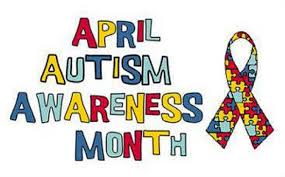 Why would anyone link an ancient Judean king with autism? Let me begin with full disclosure. No one in my family or circle of friends has officially been placed on the spectrum. And I didn’t write King Manasseh’s fictional persona as high-functioning autistic (HFA) to push an agenda. I wrote Judah’s fourteenth king with this particular struggle because careful and thorough research led me to it.
Why would anyone link an ancient Judean king with autism? Let me begin with full disclosure. No one in my family or circle of friends has officially been placed on the spectrum. And I didn’t write King Manasseh’s fictional persona as high-functioning autistic (HFA) to push an agenda. I wrote Judah’s fourteenth king with this particular struggle because careful and thorough research led me to it.
A Research Junky
If you haven’t read any of my books, you may not realize the extent of research I do to write biblical historical novels. Those who have read them know I’m so fascinated by the Bible I often joke that writing is just an excuse to do research!
Nothing is more thrilling for me than to discover new historical facts that clarify or deepen my understanding of Scripture–or when I find something to include in the story that makes readers reach for their Bibles!
So when I discovered some details about Manasseh that made me scratch my head a little, I needed to do even MORE research than usual…
Source #1 – What the Rabbis Said
Jewish historians argue over Manasseh’s eternal fate, but they agree that he possessed a profound knowledge of the Torah (what Christians call Old Testament) and could interpret Leviticus fifty-five different ways (Sanh. 103b).
The concept of a superior intellect was my first inkling that Manasseh might have been HFA. Some studies show Savant Syndrome in as many as 80% of Asperger’s cases, while others show it in as little as 10%.
Welcome to the world of autism. The phrase I heard repeatedly from everyone I interviewed was:
“If you’ve met one person with autism,
you’ve met one person with autism.”
Source #2 – What Medical Experts Said
After months of biblical and historical research, I began writing the rough draft—and knew immediately I was in over my head. I sent off several chapters to my sweet author friend, Pepper Basham, who also happens to be a “speech-language therapist with specialty in social communication disorders” (laymen’s terms: speech therapist for autistic teens). She helped a TON with the language piece.
Another friend put me in touch with a woman from Texas who works with HFA young adults to help them transition from Mom & Dad’s house to a semi-independent group environment. Juli’s expertise as a Certified Autism Specialist was invaluable.
Source #3 – What the REAL Experts Said
But I needed more direction from a different kind of expert. So I called in the “Mom Squad,” sending chapters to five moms of adolescent HFA boys. These women live with their children 24/7, 365, for a lifetime. They know the joys & sorrows, victories & defeats, challenges & benefits of living with an adolescent placed on the spectrum.
One of those moms went through my entire manuscript, giving feedback on Manasseh’s every thought, word, and action. Honestly, I could NOT have written this book with its HFA authenticity without her input (HUGE thank you, Katie!).
3 Questions Evolve to 3 Reasons
The whole interviewing process was new to me. Let’s face it. I don’t get to interview too many biblical characters! 😉 But as I delved into research and interviewed both medical professionals and expert moms, I learned valuable lessons about HFA individuals that helped answer many of my questions about Manasseh.
What questions? I’ll share 3 specific questions in next month’s blog post and how the answers to those questions helped me decide WHERE on the spectrum to place Manasseh in regard to his thoughts, speech, and actions.
Review on the Spectrum
 April was Autism Awareness Month. If I’d been better at marketing, I would have done these posts all in April and really pushed Isaiah’s Legacy to the autistic community. That’s never really been my style. I figure the Lord will open the right doors when it’s time. And for one Amazon reviewer named Stephanie, it was time.
April was Autism Awareness Month. If I’d been better at marketing, I would have done these posts all in April and really pushed Isaiah’s Legacy to the autistic community. That’s never really been my style. I figure the Lord will open the right doors when it’s time. And for one Amazon reviewer named Stephanie, it was time.
The Review That Touched My Heart:
I got 18 pages into the book before I began to fear how Mesu would portray him. To wit, she portrays Nasseh as on the autism spectrum. I am on the spectrum, and I have heard so many horrible stories of people claiming that we autistics have no empathy, sociopathic and violent tendencies, you name it. I had to skip to the author’s note to see why Mesu made this choice.
Thankfully, Mesu is extremely clear that there is *no* discernible link between violence and autism. I think she walked a fine line with Nasseh’s character, but managed to communicate that with or without a disability, Nasseh’s choices were eventually his own. In some ways, I think she did the best job of crafting a character with a disability that I have ever seen in Christian fiction. Most Christian authors seem terrified to admit that people with disabilities, too, are capable of sin, capable of repentance, and need God to capture and build their hearts. Do I wish Nasseh had been less sinful in that journey? Sure, but that’s Biblical history. The point is, whether the real Manasseh was on the spectrum or not, God loved and restored him. As I mentioned, his final arc is one of the most unexpected parts of Isaiah’s legacy, but possibly my favorite.
Want to Know More?
If you’d like to know more about the book and how it was written, come back next month! Or visit the Isaiah’s Legacy page to read its first chapter HERE.
And if you’d like to know more about autism in general, the following video was very helpful to me as I formed Manasseh’s character.




Comments 5
interesting post dear Mesu!
Author
Thanks, Luca!
Pingback: 3 Questions That Helped Characterize Manasseh - Mesu Andrews
Yes! That review about Manasseh’s autism was excellent. Representation is important, and in all forms. I’ve read several books featuring autistic characters, but so far Adnah’s Legacy, and from what I hear Isaiah’s Legacy, seem to have the most solid descriptions.
Author
Thanks so much, Nadia!